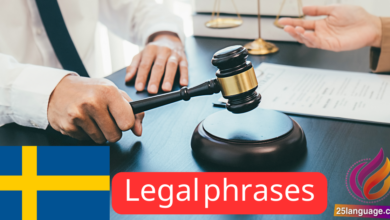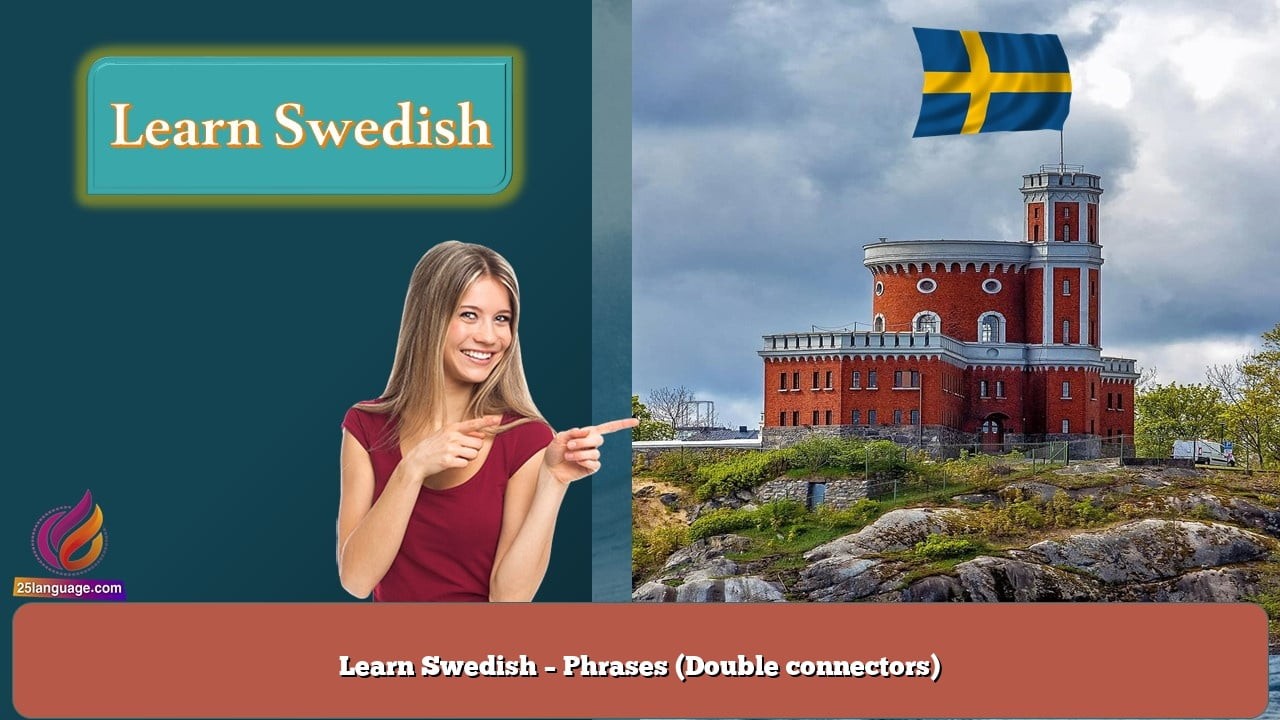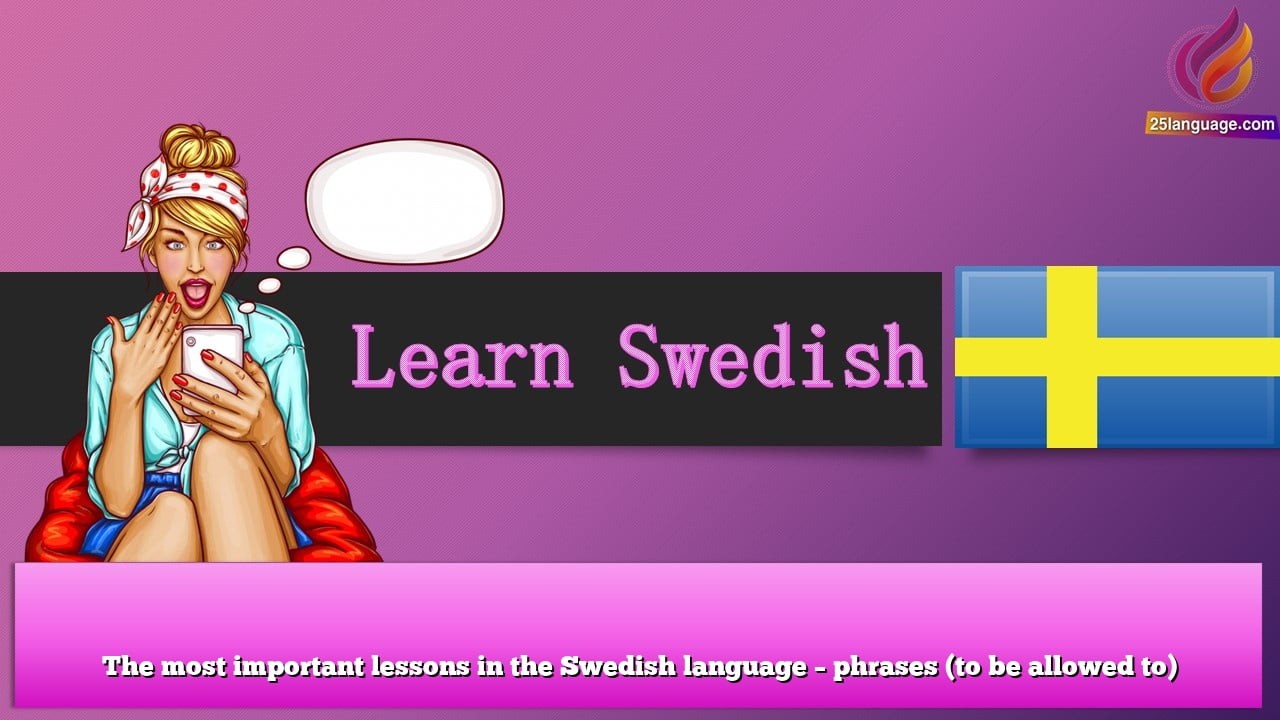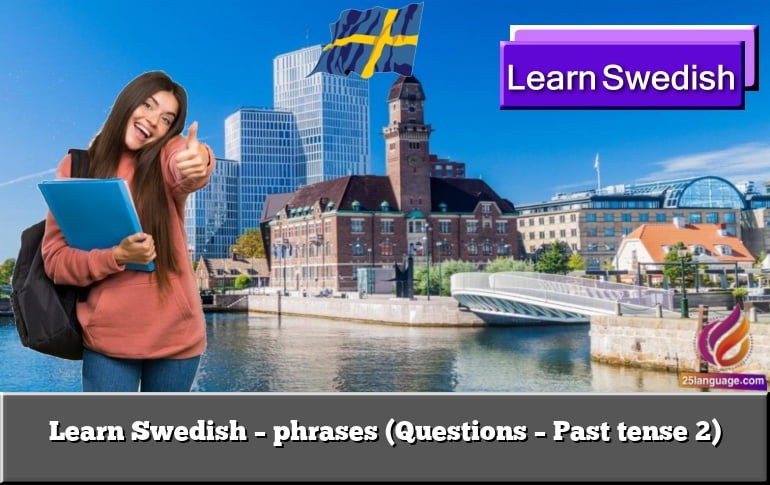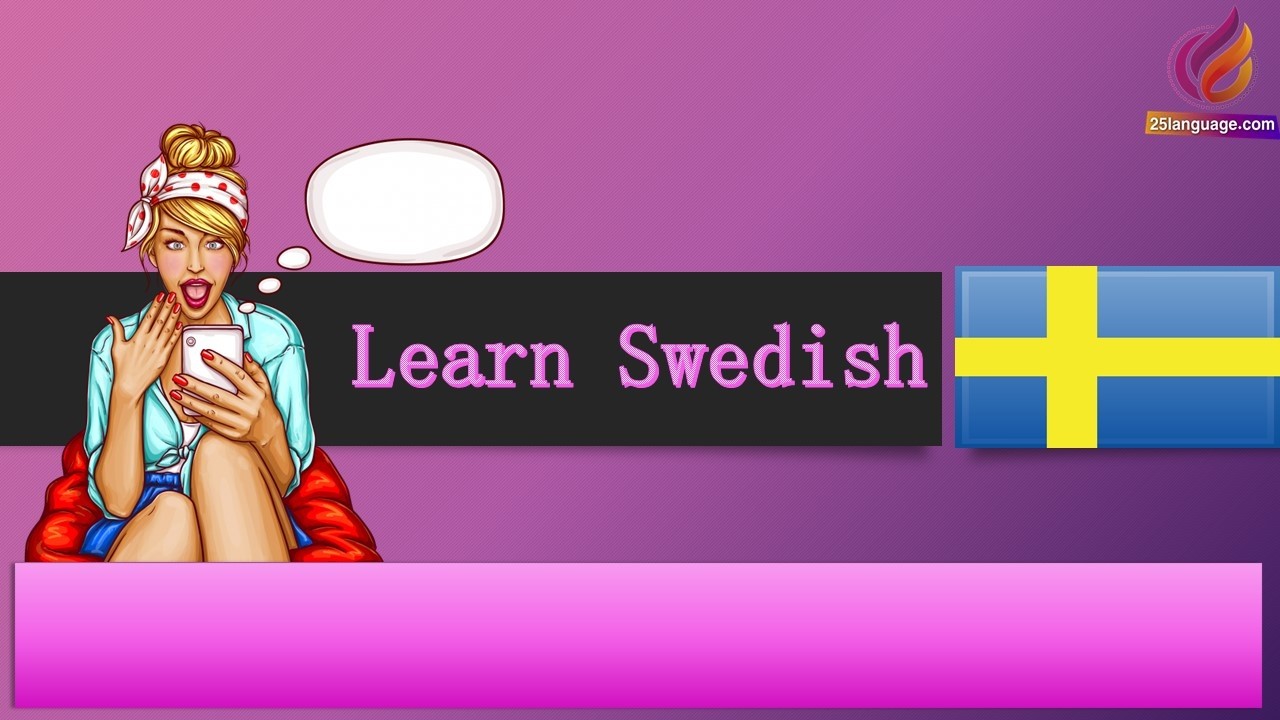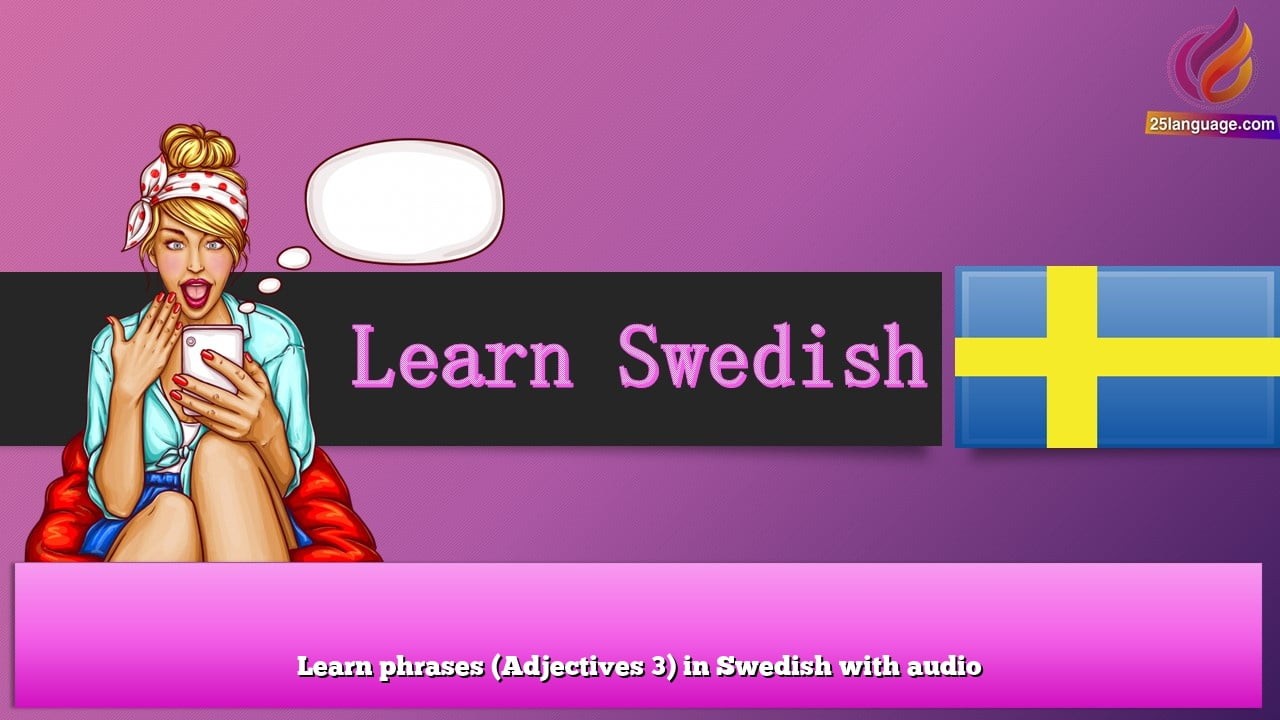Learn Swedish – Phrases (Subordinate clauses: that 2)
Phrases (Subordinate clauses: that 2)

😍😍Hi friends 👍👍Don't forget to listen to the pronunciation 😊Learn Swedish easily😊
In Swedish, subordinate clauses are introduced by the conjunction “att”, which means “that” in English. Subordinate clauses are dependent clauses that cannot stand alone as complete sentences, but instead are part of a larger sentence that includes an independent clause.
Here are some examples of subordinate clauses introduced by “att” in Swedish:
- Jag tror att det kommer att regna idag. (I think that it will rain today.)
- Hon sa att hon skulle komma klockan åtta. (She said that she would come at eight o’clock.)
- Jag vet att du har rätt. (I know that you’re right.)
- Han sa att han inte ville gå med oss. (He said that he didn’t want to go with us.)
- Hon frågade om jag visste att festen var på lördag. (She asked if I knew that the party was on Saturday.)
In Swedish, the word order in a subordinate clause is the same as in an independent clause, with the verb in second position. However, the word order can change if there is an adverb or object that needs to be placed in a specific position.
It’s important to note that in some cases, the conjunction “att” can be omitted in Swedish, especially in spoken language or in more informal situations. Here are some examples:
- Jag tror det kommer att regna idag. (I think it will rain today.)
- Hon sa hon skulle komma klockan åtta. (She said she would come at eight o’clock.)
In these cases, the word order remains the same as in a normal subordinate clause.
Listen to the following examples :
| Swedish Sentence | English Translation |
|---|---|
| Jag tror att han kommer att gilla presenten. | I think that he will like the gift. |
| Hon sa att hon skulle komma tidigt imorgon. | She said that she would come early tomorrow. |
| Jag vet att du har rätt om det här. | I know that you’re right about this. |
| Han sade att han skulle ringa mig senare. | He said that he would call me later. |
| Hon frågade om jag visste att festen var på lördag. | She asked if I knew that the party was on Saturday. |
| Jag hoppas att vi kan träffas snart igen. | I hope that we can meet again soon. |
| Hon sa att hon skulle skicka mig ett mejl ikväll. | She said that she would send me an email tonight. |
| Jag märkte att det var något konstigt med hans röst. | I noticed that there was something strange about his voice. |
| Han tyckte att boken var tråkig och ointressant. | He thought that the book was boring and uninteresting. |
| Hon visste att hon skulle ha svårt att sova på planet. | She knew that she would have difficulty sleeping on the plane. |
| Jag är säker på att det finns en lösning på det här. | I’m sure that there’s a solution to this. |
| Han påpekade att det var viktigt att vara noggrann. | He pointed out that it was important to be careful. |
| Hon frågade om jag var säker på att jag ville gå. | She asked if I was sure that I wanted to go. |
| Jag tänker att det är bättre att vänta tills imorgon. | I think that it’s better to wait until tomorrow. |
| Han föreslog att vi skulle gå ut och äta middag tillsammans. | He suggested that we should go out and have dinner together. |






